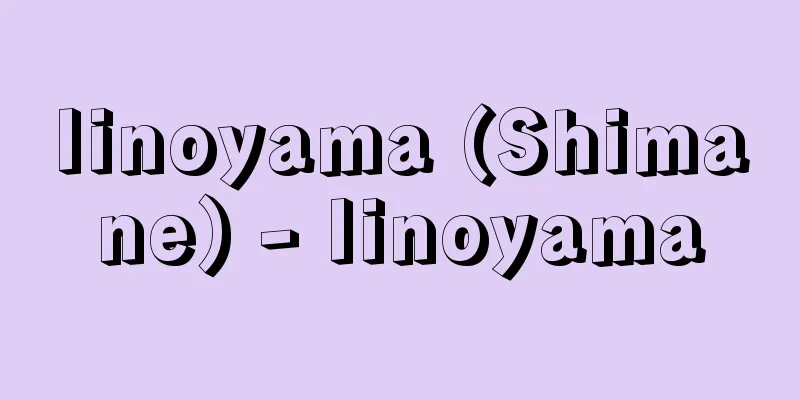Engagement - Engagement (English spelling) French

|
Originally it meant a contract or a bond, but it also means actively participating in political and social issues. Since Sartre began to use this term extensively immediately after World War II, it has become inseparable from the ideas of the atheistic existentialist group centered around him. According to Sartre's philosophy, each human being, a conscious being, overcomes the past through free choice, negating the self that currently exists, and creating something that does not yet exist. Therefore, the human condition can be defined as both self-liberation from the present state and self-binding (engagement) toward a goal that does not yet exist. Moreover, since humans are "beings in the world" and are bound to this world along with others, the choices each person makes in response to each situation must be given more importance than anything else. The engagement that Sartre advocated was by no means limited to political action or social participation in the narrow sense, but was the way in which humans, who are bound by the times and circumstances but at the same time free beings, actualize themselves, and was therefore an extremely ethical idea that emphasized the responsibility of each individual. Moreover, as Sartre gradually came to embrace Marxism, the concept of engagement expanded accordingly, and eventually even came to mean participation in the wholeness of history. Furthermore, this engagement was also pointed out in relation to literary creation. Sartre severely criticized the irresponsibility of writers before the Second World War, and argued that writing for one's contemporaries and taking responsibility for them is what a writer should be like, thus advocating "literature of engagement." However, even in this field, he gradually moved away from narrow politicalism and came to believe that literary engagement is when a writer delves deeply into his or her own individuality and approaches the whole and universal. This attitude appealed to young people not only in France but also in developed countries around the world from the end of World War II until the 1960s. The popularity of engagement faded after the 1960s, but this does not mean that this attempt to grasp both the individual and the whole at the same time has lost its significance. [Michihiko Suzuki] "What is Existentialism?" by Sartre, translated by Takehiko Ibuki et al., revised and expanded edition (1996, Jinbun Shoin) " "What is Literature?" by Takehiko Ibuki, Shuichi Kato et al., revised and expanded edition (1998, Jinbun Shoin)" Source: Shogakukan Encyclopedia Nipponica About Encyclopedia Nipponica Information | Legend |
|
もともとは、契約、拘束などの意味だが、政治や社会の問題に進んで積極的に参加していくことをさすことばでもある。とりわけ第二次世界大戦直後に、サルトルがこの語を多用して以来、これは彼を中心とする無神論的実存主義のグループの思想と切り離せないものになった。 サルトルの哲学によれば、意識存在である人間は、めいめいが自由な選択によって過去を乗り越え、現に存在している自己を否定しつつ、まだ存在していないものをつくりだしていく。したがって人間のあり方は、現在の状態からの自己解放であるとともに、まだ存在しない目的へ向かっての自己拘束(アンガージュマン)であると規定できる。しかも人間は「世界内存在」であって、他者とともにあらかじめこの世界に拘束されているのであるから、それぞれの状況に働きかける各自の選択こそ、なによりも重視しなければならないものである。 サルトルの主張したこのようなアンガージュマンは、けっして狭い意味での政治行動や社会参加に限定されるものではなく、時代や状況に束縛されていながら同時に自由な存在でもある人間が自己を実現していく仕方のことであり、したがって、各人の責任を強調するきわめて倫理的な思想であった。しかもサルトルは徐々にマルクス主義を受け入れていったために、それに応じてアンガージュマンの概念もいっそうの広がりをもち、ついに歴史の全体性への参加、という意味すら帯びるに至った。 さらにこのアンガージュマンは、文学の創造に関しても指摘された。サルトルが第二次世界大戦前の作家たちの無責任性を厳しく追及して、同時代人のために書き、かつ同時代に責任を負っていくことこそ、ものを書く人間のあるべき姿であるとし、こうして「アンガージュマンの文学」を提唱したからである。しかしこの領域でも、彼は少しずつ狭い政治主義から脱して、作家が自分の独自性を深く掘り下げて全体と普遍に迫ることこそ、文学のアンガージュマンであると考えるようになった。 こうした態度は、第二次世界大戦後から1960年代まで、単にフランスだけでなく、世界的に先進国の青年たちに訴えるものをもっていた。1960年代以後、アンガージュマンの流行はいったん終わったが、個と全体を同時にとらえようとしたこの試みの意義が失われたわけではない。 [鈴木道彦] 『サルトル著、伊吹武彦他訳『実存主義とは何か』増補新装版(1996・人文書院)』▽『サルトル著、伊吹武彦・加藤周一他訳『文学とは何か』改訳新装版(1998・人文書院)』 出典 小学館 日本大百科全書(ニッポニカ)日本大百科全書(ニッポニカ)について 情報 | 凡例 |
<<: Ankara - Ankara (English spelling)
Recommend
Tragopan satyra (English spelling)
…[Ryozo Kakizawa]. … *Some of the terminology exp...
First Torii Gate - Ichinotorii
① The first torii gate counting from the entrance ...
Business combination
〘 noun 〙 The integration of companies in the same ...
apeiron
…In ancient Greece, the theory of infinity was es...
Koga Itsaku - Koga Issaku
Electrical communication engineer. Known for his ...
SCM materials - SCM materials
...steel used for functional parts of machines th...
Abū 'l-'Alā al-Ma'arrī (English spelling)
973‐1057∥58 A unique poet born in Ma'alla an-N...
Paddle training - Kaineri
〘Noun〙 A festival event held at Kashima Shrine in ...
Joint rule - Kyodo to Uchi
The Latin word condominium is a concept that origi...
knorringite
...It is one of the important rock-forming minera...
Jericho Ruins
...A town in the West Bank of the Jordan River in...
Numagaya - Numagaya
A perennial grass of the grass family (illustratio...
Akisato - Akisato
…In the Middle Ages, it was also written as '...
"Ancient Cultural Periods in the Orient and Europe" - Ancient Cultural Periods in the Orient and Europe
…Using these research methods, he completed a chr...
Cavaliere d'Arpino - Cavaliere d'Arpino
...Generally, it refers to an anti-classical art ...









